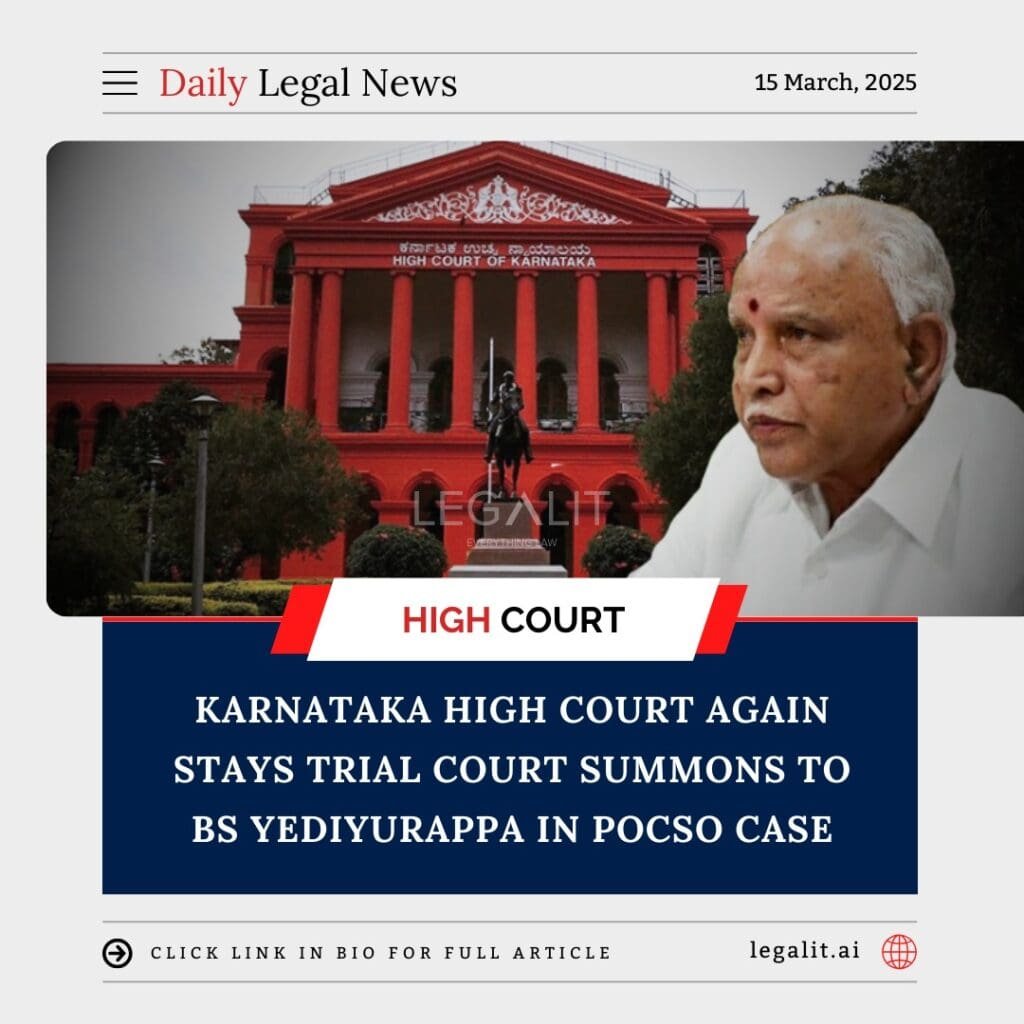
Background
The Karnataka High Court has once again stayed the summons issued by a trial court to former Chief Minister BS Yediyurappa in a case registered under the Protection of Children from Sexual Offences (POCSO) Act. The case stems from allegations against Yediyurappa, which led to legal proceedings in the lower court. However, the High Court’s intervention has put the trial court proceedings on hold.
The initial complaint had led to the issuance of summons, requiring Yediyurappa to appear before the trial court. He subsequently challenged the summons, arguing that the allegations were baseless and politically motivated. His legal team contended that there was insufficient evidence to substantiate the charges under POCSO Act and relevant sections of the Indian Penal Code (IPC).
Court’s Rationale
The Karnataka High Court, in staying the summons, took into account several key considerations:
- Prima Facie Lack of Evidence
- The court observed that the material on record did not conclusively establish grounds for proceeding against Yediyurappa.
- It questioned whether the allegations met the legal threshold required for invoking POCSO Act provisions.
- Political Angle to the Case
- The defense argued that the case was politically motivated, filed with an intent to malign Yediyurappa’s reputation.
- The court acknowledged the possibility of misuse of legal provisions in politically sensitive matters.
- Legal Precedents on Summons and Criminal Trials
- The High Court referred to prior judgments emphasizing that criminal proceedings should not be initiated without substantial evidence.
- It reiterated that courts must ensure due process before directing accused persons to appear in sensitive cases.
- Impact on the Judicial Process
- The High Court underscored the need for a careful examination of charges before allowing the trial to proceed.
- It held that until further review, the trial court’s summons would remain stayed.
Existing Measures and Legal Context
- Protection of Children from Sexual Offences (POCSO) Act, 2012
- Defines and criminalizes sexual offenses against minors.
- Ensures strict legal scrutiny before proceeding with cases.
- Judicial Approach in High-Profile Cases
- Courts have previously intervened in cases involving public figures to prevent misuse of legal provisions.
- Legal safeguards ensure that political figures are not subjected to unwarranted litigation.
Implications of the Judgment
The High Court’s decision has broader legal and political implications:
- For Legal Proceedings – The ruling stresses the need for sufficient evidence before proceeding against public figures.
- For Political Allegations – Highlights concerns over the potential misuse of legal frameworks in politically charged cases.
- For POCSO Cases – Reinforces the principle that charges under POCSO must be backed by concrete evidence to avoid dilution of the law’s intent.
- For Future Judicial Scrutiny – Sets a precedent for courts to exercise caution in cases involving high-profile individuals.
Conclusion
The Karnataka High Court’s decision to stay the trial court summons to BS Yediyurappa underscores the importance of due process and evidentiary scrutiny in politically sensitive cases. While the case remains under judicial review, the ruling highlights the judiciary’s role in balancing legal accountability with protection against frivolous allegations. The matter is expected to be further examined in subsequent hearings.